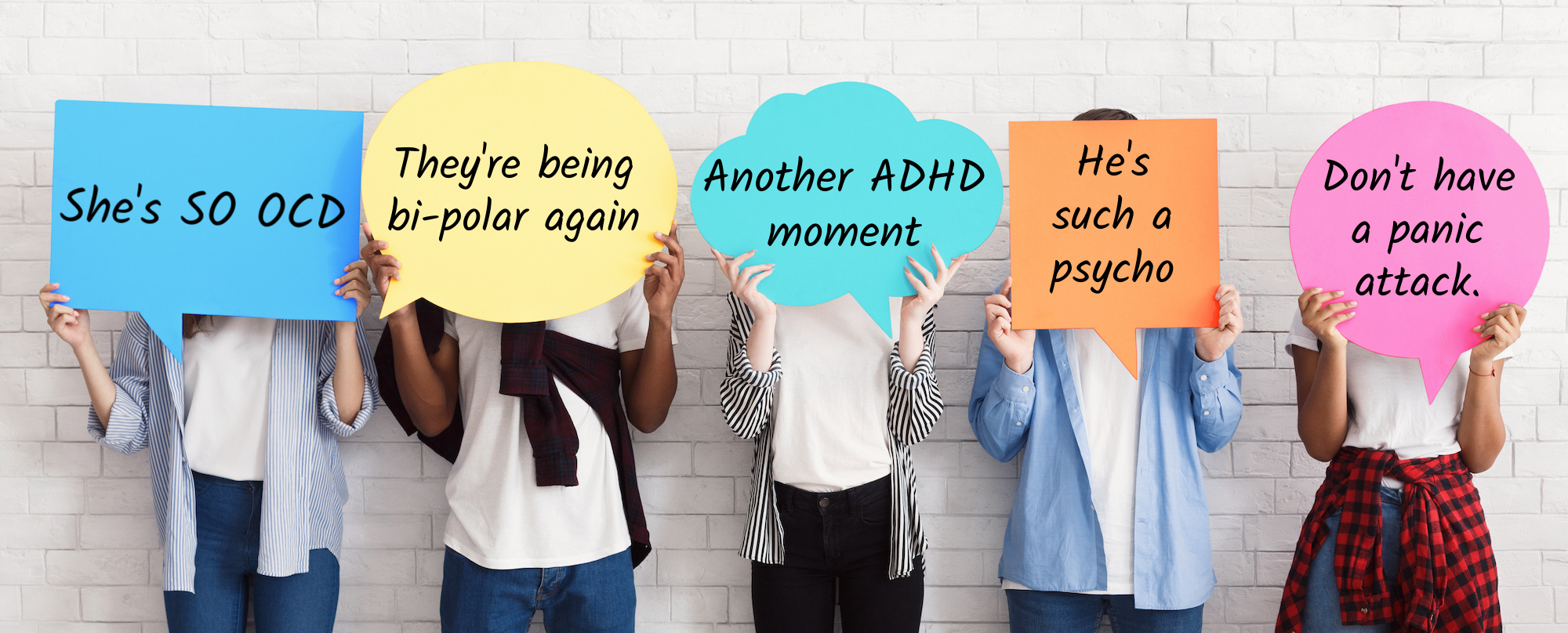By Emma Sacks, college intern, and Dr. Divya Babbar
“She’s so OCD.”
“They’re totally bipolar!”
“Sorry, I’m just so ADHD right now.”
Have you heard someone say phrases like these? Have you said one of them yourself? We turn diagnoses to adjectives in everyday communication without full consideration of what these words and acronyms mean. When we call someone manic, or obsessive, or schizoid, or even when we claim to be having a panic attack, we are using formal diagnostic language as adjectives –– which can undermine the experience of those who is coping with a mental health condition.
Turning diagnoses to adjectives can trivialize the experiences of those with diagnosed conditions. If we say, “She so OCD.” Do we mean she is diagnosed with obsessive compulsive disorder, or do we mean she is a neat person? An individual with OCD might wash their hands an exact number of times before they feel they are able to go to work. This is not simply being neat. Similarly, someone with panic disorder experiences intense fear and physical pain far different from when we are feeling overwhelmed and claim to be “having a panic attack.”
When we use diagnoses in everyday language to describe behaviors not consistent with a diagnosis, our understanding of the severity of that diagnosis changes. This then creates an assumption that a mental health condition is “not that bad”, which invalidates the experience of those who are diagnosed with a mental health condition. Furthermore, these misconceptions about severity can lead to a person’s needs being minimized at work, at school, or in social situations.
Using diagnoses to describe behaviors we deem as undesirable, also works to stigmatize these conditions. This is because we are inherently communicating that having a mental health diagnosis is unwanted and a departure from “normalcy”. The most common example of this is the use of “psycho” which is in reference to psychosis, including Schizophrenia, one of the most stigmatized mental health conditions. Stigmas in mental health make discrimination in access to medical care, education, and employment more possible. So, while it may not seem like much to call someone crazy or a psycho, this language helps perpetuate a harmful stigma. Try, instead, using more concrete language to describe yourself or the other person in terms of what you are actually experiencing.
It can be difficult to change our everyday language, especially when those around us continue to use such language. Give a gentle reminder to your friends, family, and colleagues to rephrase their comments. You can encourage each other to make these small changes in language that are part of a larger initiative to stop the trivialization and stigmatization of mental health conditions.
Every one of us has experienced feelings of anxiety or have had trouble paying attention. For most of us these feelings are transient and do not interfere with our daily lives. Having said that, if you suspect that you may qualify for diagnosis of a mental health disorder, we at Georgetown Psychology encourage you to consult with a mental health professional. Your feelings and experience are valid, and you will not be judged for seeking support.






